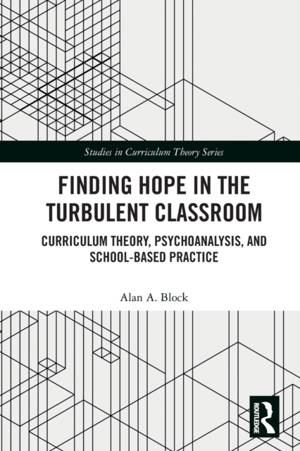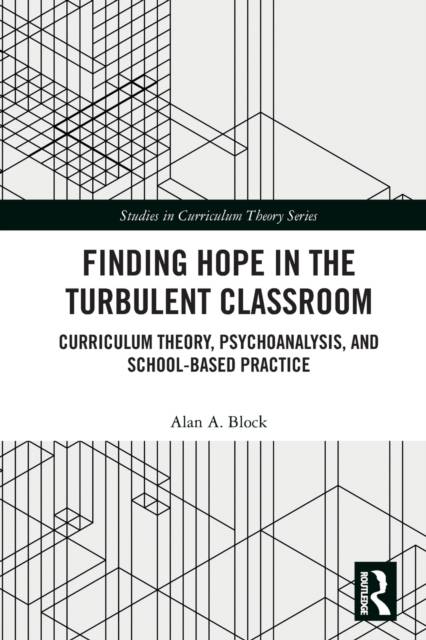
- Retrait gratuit dans votre magasin Club
- 7.000.000 titres dans notre catalogue
- Payer en toute sécurité
- Toujours un magasin près de chez vous
- Retrait gratuit dans votre magasin Club
- 7.000.0000 titres dans notre catalogue
- Payer en toute sécurité
- Toujours un magasin près de chez vous
Finding Hope in the Turbulent Classroom
Curriculum Theory, Psychoanalysis, and School-Based Practice
Alan A BlockDescription
This book explores the practical and psychological factors that regulate teaching and learning in the classroom, and illustrates how hope and creativity may arise out of unforeseen, non-standard, or turbulent conditions.
Written at the intersection of curriculum theory and psychoanalysis, this volume offers an original pedagogical stance that seeks to ameliorate the impact of the classroom's regulated and standardized environment. The author's approach to classroom education suggests that teachers investigate students' psychological entanglements to explain and transform difficult classroom experiences into productive, educative ones. By promoting an ethos of ironic engagement in teaching and learning, this book also demonstrates the importance of playfulness, imagination, and a readiness to make mistakes in classroom settings.
This book will be of great interest to graduate and postgraduate students, researchers, academics, and policy makers in the fields of curriculum studies, teacher education, educational psychology and classroom management.
Spécifications
Parties prenantes
- Auteur(s) :
- Editeur:
Contenu
- Nombre de pages :
- 180
- Langue:
- Anglais
- Collection :
Caractéristiques
- EAN:
- 9781032239170
- Date de parution :
- 13-12-21
- Format:
- Livre broché
- Format numérique:
- Trade paperback (VS)
- Dimensions :
- 152 mm x 229 mm
- Poids :
- 249 g

Les avis
Nous publions uniquement les avis qui respectent les conditions requises. Consultez nos conditions pour les avis.






